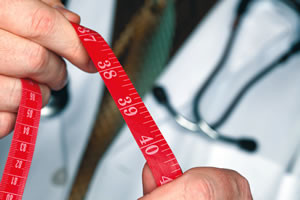Staying Healthy
Deep belly fat may weaken your bones
|
Strengthen muscles to fight back.
Here's another reason to fight the battle of the bulge: fat that lies deep in the abdomen is linked not only to heart disease and diabetes, but also to bone health. "Men with increased deep belly fat, the visceral fat that surrounds our organs, have decreased bone strength," says Dr. Miriam Bredella, an associate professor at Harvard Medical School.
Breaking down the bulge
Subcutaneous fat, just beneath your skin, is the kind you can grab to "pinch an inch." While too much isn't good for you, subcutaneous fat does have some molecules that actually benefit health, such as adiponectin, which may have an anti-inflammatory effect on blood vessel linings and decrease the risk of insulin resistance.
To continue reading this article, you must log in.
Subscribe to Harvard Health Online for immediate access to health news and information from Harvard Medical School.
- Research health conditions
- Check your symptoms
- Prepare for a doctor's visit or test
- Find the best treatments and procedures for you
- Explore options for better nutrition and exercise
I'd like to receive access to Harvard Health Online for only $4.99 a month.
Sign Me UpAlready a member? Login ».
Disclaimer:
As a service to our readers, Harvard Health Publishing provides access to our library of archived content. Please note the date of last review or update on all articles.
No content on this site, regardless of date, should ever be used as a substitute for direct medical advice from your doctor or other qualified clinician.
















